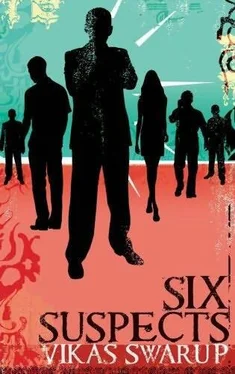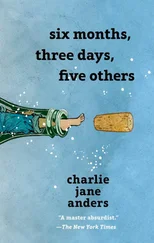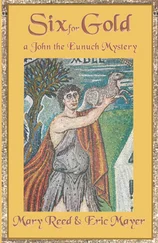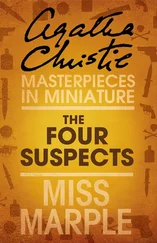'Have you come for the prayer meeting?' a guard asked Ashok.
The welfare officer nodded blankly.
'Please go inside. It is in the main drawing room.'
'You wait here,' Ashok instructed Eketi, and entered the gate. He went along a curved driveway with well-kept lawns on both sides. The house had a solid teak door which was also open, and he stepped into a large drawing room from which all furniture had been removed. There were white sheets on the floor on which approximately fifty people were seated, mostly wearing lightcoloured clothes. Men sat on one side and women on the other. At the far end was a large framed picture of a young man with a crew-cut and a thick moustache, which was decorated with a garland of red roses. Incense sticks burnt in front of the picture, the smoke curling upwards in thin wisps. A good-looking, slightly overweight woman in her early thirties sat beside the picture. Clad in a plain white cotton sari with no frills and no ornaments, she looked every inch the grieving widow.
Ashok sat down in the last row of the men's section and put on a suitably solemn expression. Through discreet questioning of the other mourners he learnt that this was a condolence meeting for the industrialist Selvam Palani Rajagopal – known to friends as SP – who had died of a heart attack two days ago, caused by a sudden and unexpected business loss.
Ashok waited two hours for the assembly to be over. After the last of the mourners had left, he went up to the widow and folded his hands. 'My name is Amit Arora. So sorry to hear about SP's death, Bhabhiji, so sorry,' he mumbled. 'It is hard to imagine that a man of thirty-five can suffer a heart attack. I met him just ten days ago in Kolkata.'
'Yes. My husband had a lot of business in Kolkata,' she replied.
'How did you know Raja?' There was a strangled quality to her voice which he found oddly erotic.
'He was my senior in IIT Madras.'
'Oh, so you are also an alumni of IIT-M? It's strange Raja never mentioned you.'
'We sort of lost touch after graduation. You know how these things happen.' He spread his hands and fell silent. Somewhere inside the house a pressure cooker whistled.
'So are you also living in Chennai?' Mrs Rajagopal enquired.
'There are not too many North Indians here.'
'No. I now live in Kolkata. I left Chennai soon after graduating.'
A maid brought him tea in a bone-china cup.
'If you don't mind, there is one thing I wanted to ask you, Bhabhiji,' Ashok said in the oily tone of someone bringing up a delicate subject.
'Yes?' she responded warily.
'SP told me he had bought a shivling from an antique dealer in Kolkata. Can I see it?'
'Oh, that shivling? Adu Poyiduthu! It's gone. It is now with Guruji.'
'Guruji? Who is he?'
'Swami Haridas. Raja was his disciple for the past six years. Guruji came for the funeral yesterday. He saw the shivling and asked if he could have it. So I gave it to him. Now that Raja is gone, what would I have done with it?'
'Can you tell me where Guruji lives? Is it close by?'
'He lives in Mathura.'
' Mathura? You mean Mathura in Uttar Pradesh?'
'Yes. That is where he has an ashram. But he has branches all over India.'
Ashok slumped back. 'So now I will have to travel all the way to Uttar Pradesh!'
'Why? What is your interest in that shivling?'
'It is rather complicated… Can you give me Swamiji's telephone number in Mathura?'
'Actually Guruji is not in Mathura now.'
'Then where is he?'
'He has gone on a world tour. Yesterday he left Madras for Singapore. From there he will go to America, then Europe.'
'So when will he return to Mathura?'
'He will only return after two to three months.'
'Two to three months?'
'Yes. Your best chance of finding him will be at the Magh Mela in Allahabad in January next year. He told me he would be going there for discourses.'
'Thank you, Bhabhiji. Take care. I shall be in touch,' Ashok said, trying to mask the disappointment in his voice, and took his leave.
Eketi was still sitting on the kerb outside the entrance when Ashok emerged from the gates. 'What took you so long?' He looked quizzically at Ashok.
'The sea-rock has eluded us once again. Worse, it has left the country,' Ashok said dejectedly. 'It will come back only after three months. So I am taking you back to the island.'
'Back to the island?' Eketi sprang up in alarm. 'But you promised that we would return with the ingetayi.'
'I know. But what will I do with you for three months? I don't want to get into trouble with the Welfare Department.'
'But Eketi doesn't want to return to the island.'
Ashok looked at him sharply. 'Are you out of your bloody mind? Why don't you want to return?'
'What is there to return to? Eketi was trapped on that island, suffocated by it,' the Onge cried. 'I would look at the pictures of India in the book they gave us in school and dream about them. I observed the big ships crossing the ocean and wondered where they went to. I used to see the foreigners arrive with their cameras to gawk at us, and my mind used to go crazy. I felt like jumping into their boats and just going somewhere. Anywhere. That is why I came here. To escape from the island. And Eketi is not going back.'
'Is that why you volunteered to recover that rock?'
'Yes. Eketi wanted to come to India.'
'And you have no concern about what will happen to your tribe if they don't get that sacred rock back?'
'Eketi will help you recover the ingetayi. Then you can take it back, and Eketi will remain behind in your wonderful country.'
'So this was all part of a devious plan, eh? And have you thought of what you will do here?'
'Eketi will get married. Back home, old people marry all the young girls. I had no hope of finding a wife if I stayed on the island. Here I can have a new life. Get a wife.'
'This takes the biscuit.' The welfare officer gave a sardonic laugh. 'You really think that a worthless idiot like you will get a wife here? Have you taken a look at yourself in the mirror? Who will marry a black midget like you?'
'Leave that to Puluga,' Eketi said petulantly.
Ashok's demeanour suddenly changed. 'Look, you bastard. This is not a tourist excursion I brought you on. You came to get the ingetayi. We didn't find it. So you must go back to Little Andaman. Tomorrow the Nancowry will sail for Port Blair from here, and you will be on that ship with me. I've had enough of your nonsense. Now come with me, we have to find a hotel for the night.'
Ashok flagged down an auto-rickshaw, but the tribal refused to board it. 'Eketi will not go,' he said adamantly.
'Don't force me to hit you, blackie.' Ashok raised his hand.
'Eketi will not go even if you hit him.'
'Then should I call the police? Do you know that any tribal caught outside his reserve can be jailed immediately?'
Eketi's eyes flickered with fear, and Ashok pressed home his advantage. 'Now get in, you bastard,' he said through clenched teeth and pushed the tribal into the auto-rickshaw.
'Take us to Egmore,' he instructed the driver.
As they drove through the mid-afternoon traffic, the tribal sat in tense anticipation, like a sprinter crouching at the start line. His pulse quickened when the auto-rickshaw approached a busy intersection. The moment it stopped at the traffic light, he leapt out with his black canvas bag. Ashok could only watch, flabbergasted and helpless, as he dashed through the maze of cars, buses, scooters and rickshaws, and soon disappeared from the welfare officer's view.
He ran for a long time, dodging carts and cows, darting through empty playgrounds and passing jam-packed cinema halls. Finally he stopped to catch his breath in front of a cycle repair shop. Stooped on his haunches, he drew in a lungful of air and then took a good look at his surroundings. The cycle shop was situated in the middle of a bustling market. In the distance he could see a traffic island with a big statue in the centre. For a long time he stood at the edge of the road, inhaling the noxious fumes from passing trucks and cars, listening to the din that radiated from the crossing, feeling increasingly like a lost boy in a crowd of strangers. He was also beginning to feel hungry. That is when he noticed a tall man standing on the opposite side of the road, wearing fashionable dark glasses, a loose white linen shirt and grey trousers. He was leaning casually against the metal railing of a bus shelter and smoking a cigarette. Like him, the stranger also had small knots of closely coiled hair. But what drew him to the man was the colour of his skin, almost as jet black as his.
Читать дальше












